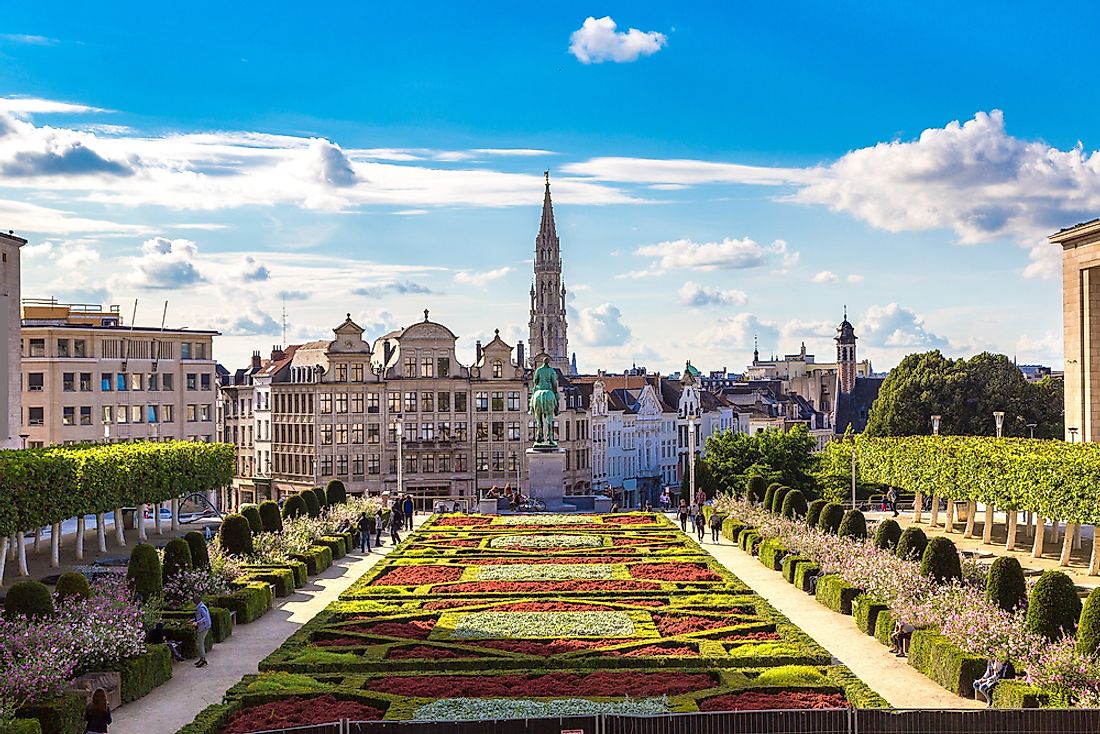What Is The Capital Of Belgium?

Belgium, also known as the Kingdom of Belgium, is a country located in Western Europe. It shares borders with Germany, Luxembourg, France, and the Netherlands and has a coastline on the North Sea. This country covers an area of 11,787 square miles and has a population size of 11.25 million. This article takes a closer look at the capital of Belgium.
What Is the Capital Of Belgium?
The capital of Belgium is the City of Brussels, which is the largest of the 19 municipalities within the Brussels-Capital Region. This city also serves as the administrative center of the European Union. It covers a total area of 12.59 square miles and has a population size of 178,552. The metropolitan area, which includes the Brussels-Capital Region, has a population of 1.8 million.
As the national capital, this city is home to a number of important national buildings and offices, including: the Royal Palace, used by the King to carry out responsibilities as head of state; the office of the Prime Minister, where the Council of Ministers meets; and the Palace of the Nation, which houses the Federal Parliament. Additionally, the National Bank of Belgium, the Court of Cassation, and the Council of the State are also located here.
In addition to being the capital of Belgium, the City of Brussels is also the capital of the country’s French and Flemish Communities and home to the Government and Parliament of each Community.
Demographics Of The Capital Of Belgium
The Brussels-Capital Region is home to a large percentage of immigrants. Immigration to this area of the country began in the late 18th century and in recent years, has been steadily increasing. In 1991, the last census of the Brussels-Capital Region, approximately 63.7% of the residents here reported that they were born in Belgium. The largest group of foreign nationals in this region are French (a population of around 62,507). This is followed by Romanians (38,690), Moroccans (38,274), and Italians (32,322).
When the Kingdom of Belgium was founded, it was a largely Dutch-speaking country. Today, the Brussels-Capital Region is considered a multilingual city with French serving as the lingua franca. Approximately 38% of residents report speaking French at home, 17% speak Dutch and French, and 5% speak Dutch.
History Of The Capital Of Belgium
During the War of the Austrian Succession of 1746, French forces took control of the city for 3 years. After that, it was returned to Austria until 1795, when it was once again captured by the French and designated as the capital of the Dyle Department. Brussels became part of the United Kingdom of the Netherlands in 1815. Fifteen years later, the Belgian revolution took place, bringing independence to Belgium. At this time, Brussels was established as the capital.
Originally, the second walls of Brussels, built between 1356 and 1383, formed the borders of the City of Brussels. Today, some of the roads in the historic city center follow the curves that these walls create. As the population grew here, the city eventually expanded into the surrounding villages, resulting in one, larger city. In 1921, the municipalities of Laken, Haren, and Neder-Over-Heembeek were merged into the City of Belgium.











